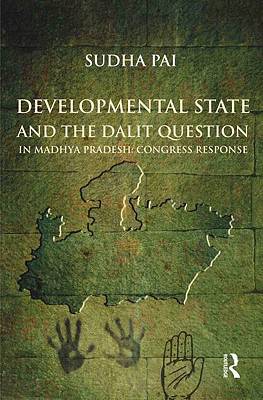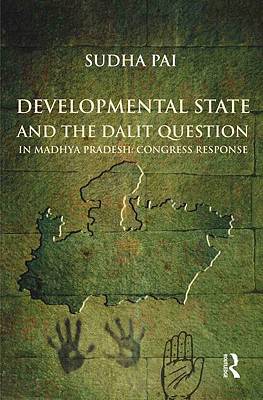
- Retrait gratuit dans votre magasin Club
- 7.000.000 titres dans notre catalogue
- Payer en toute sécurité
- Toujours un magasin près de chez vous
- Retrait gratuit dans votre magasin Club
- 7.000.000 titres dans notre catalogue
- Payer en toute sécurité
- Toujours un magasin près de chez vous
Developmental State and the Dalit Question in Madhya Pradesh
Congress Response
Sudha PaiDescription
Dalit assertion has been a central feature of the states in the Hindi heartland since the mid-1980s, leading to the rise of political consciousness and identity-based lower-caste parties. The present study focuses on the different political response of the Congress party to identity assertion in Madhya Pradesh under the leadership of Digvijay Singh. In Uttar Pradesh and Bihar, in response to the strong wave of Dalit assertion that swept the region, parties such as the Bahujan Samaj Party (BSP) and the Rashtriya Janata Dal (RJD) used strategies of political mobilisation to consolidate Dalit/backward votes and capture state power. In Madhya Pradesh, in contrast, the Congress party and Digvijay Singh at the historic Bhopal Conference held in January 2002 adopted a new model of development that attempted to mobilise Dalits and tribals and raise their standard of living by providing them economic empowerment. This new Dalit Agenda constitutes an alternative strategy at gaining Dalit/tribal support through of state-sponsored economic upliftment as opposed to the political mobilisation strategy employed by the BSP in Uttar Pradesh.
The present study puts to test the limits of the model of state-led development, of the use of political power by an enlightened political elite to introduce change from above to address the weaker sections of society. The working of the state is thus analysed in the context of the society in which it is embedded and the former's ability to insulate itself from powerful vested interests. In interrogating this state-led redistributive paradigm, the study has generated empirical data based on extensive fieldwork and brought to the fore both the potentials and the limitations of using the model of 'development from above' in a democracy. It suggests that the absence of an upsurge from below limits the ability of an enlightened political elite that mans the developmental state to introduce social change and help the weaker sections of society.
Spécifications
Parties prenantes
- Auteur(s) :
- Editeur:
Contenu
- Nombre de pages :
- 554
- Langue:
- Anglais
Caractéristiques
- EAN:
- 9780415563130
- Date de parution :
- 11-02-13
- Format:
- Livre relié
- Format numérique:
- Genaaid
- Dimensions :
- 140 mm x 216 mm
- Poids :
- 784 g







